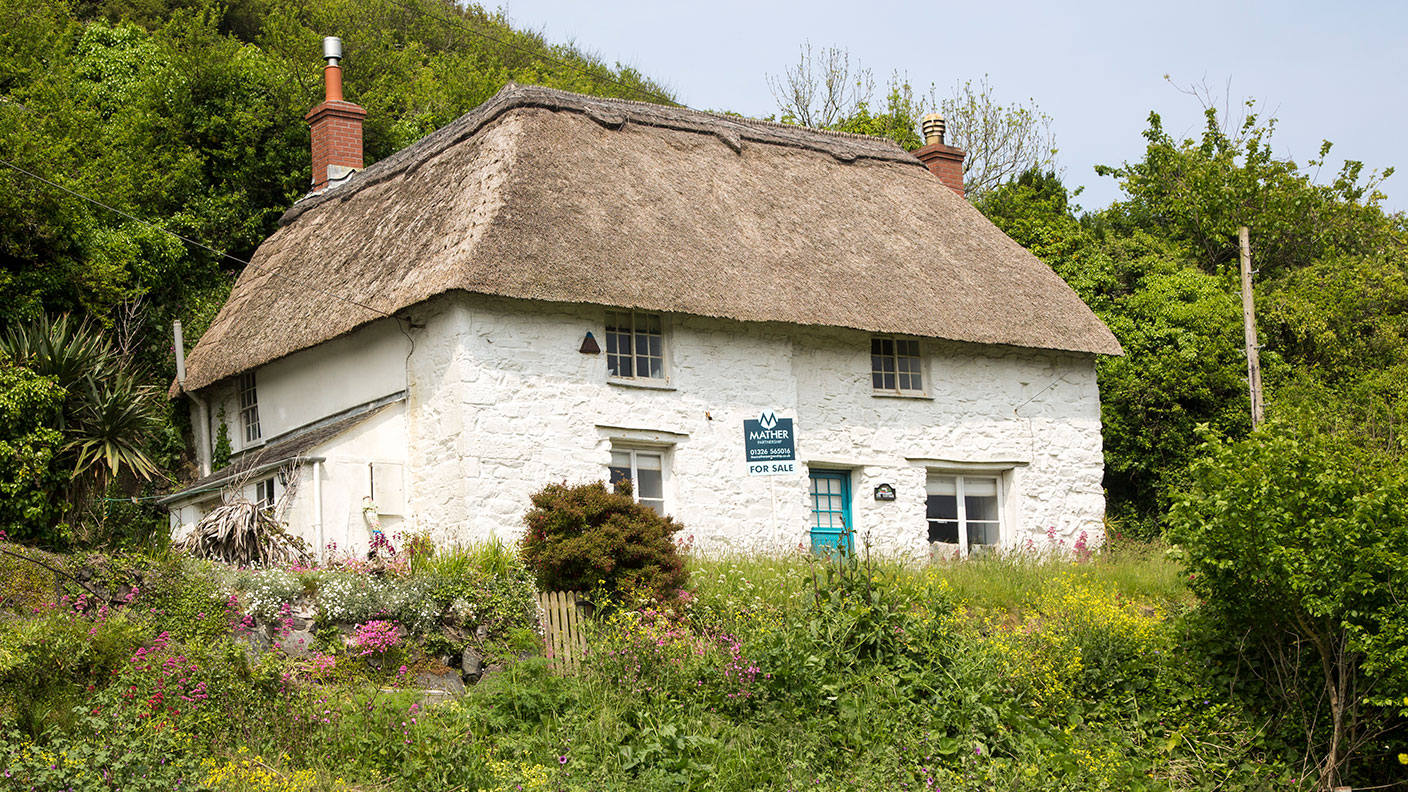UK house prices hit a new record high – can it last?
Despite the pandemic, UK house prices have hit a new high. John Stepek looks at what’s driving the surge in prices, and what it means for house prices in the longer run.


Get the latest financial news, insights and expert analysis from our award-winning MoneyWeek team, to help you understand what really matters when it comes to your finances.
You are now subscribed
Your newsletter sign-up was successful
Want to add more newsletters?

Twice daily
MoneyWeek
Get the latest financial news, insights and expert analysis from our award-winning MoneyWeek team, to help you understand what really matters when it comes to your finances.

Four times a week
Look After My Bills
Sign up to our free money-saving newsletter, filled with the latest news and expert advice to help you find the best tips and deals for managing your bills. Start saving today!
As you might have noticed, we’re still in the grip of a pandemic, and we’re nowhere near seeing the end of the resulting surge in unemployment and business disruption.
So of course, UK house prices have just hit a record high. That’s according to Halifax. Its latest house price index suggests that the average UK house price rose to a record high of £241,604 (important to get that £4 in there) in July, up 3.8% on the same month last year.
What’s driving the surge?
MoneyWeek
Subscribe to MoneyWeek today and get your first six magazine issues absolutely FREE

Sign up to Money Morning
Don't miss the latest investment and personal finances news, market analysis, plus money-saving tips with our free twice-daily newsletter
Don't miss the latest investment and personal finances news, market analysis, plus money-saving tips with our free twice-daily newsletter
Well, as with every other housing market commentator at the moment, Halifax is hedging its bets. The stamp duty holiday announced by chancellor Rishi Sunak has helped, obviously. And people who weren’t able to move during the lockdown still want to move – creating “a surprising spike” now that lockdown has been relaxed.
But the long-term outlook is cloudy, what with government support for the labour market set to drop off, warns the bank.
Meanwhile, property website Rightmove confirmed that reopening has so far been embraced enthusiastically. Apparently, property hunts were up 50% in June and July year-on-year. A fair bit of the traffic, reckons the company, is being driven not just by those who had already intended to move but by “an increased number of home hunters who have decided to move following the experience of lockdown.”
Now, how much of this is simply work-from-home tourism and escape-to-the-country daydreaming is another question. But clearly the (not entirely explicable) great British love of property hasn’t been dented by the coronavirus.
So what does any of this mean for house prices in the longer run?
Honestly, I just have to continue to point you to what we’ve been saying all along. In the absence of higher interest rates, a full-on crash is unlikely.
As a result, it looks as though our basic view – that house prices won’t crash, and that any real shift in the make-up of prices will probably focus around a bit of a move from the city to the countryside – is so far proving correct.
We’ll see how this progresses as unemployment evolves over the coming months. But on the interest-rate front, while there’s a backlog of mortgages to process, they aren’t getting any more expensive. Indeed, Moneyfacts says that the average two-year fixed-rate home loan cost 2.07% at the end of last month, from 2.48% the year before.
As we’ve noted before, first-time buyers might still struggle (Nationwide for example, is being wary about the amount of money you can borrow from the “bank of mum and dad” these days). But all that means is that transactions might be lower than they otherwise would be. It doesn’t necessarily result in lower prices, unfortunately.
Good news for renters, bad news for landlords
Anyway we’ll see what happens. But if you are looking to save money, right now the real place to be looking is the rental market.
One interesting area that we’ve highlighted before is that in the big capital cities – London and Edinburgh – rents are flat or falling. This is in contrast to the rest of the UK, according to data from property site Zoopla.
Rents in London have apparently fallen by 3% already this year, while in Edinburgh, the average rent is up by just 0.2%. That compares to average growth of around 2% for the UK as a whole.
What’s changed? As Melissa Lawford notes for The Telegraph, “there has been an influx of homes from the short-term lettings market after coronavirus hit the tourism industry.” A lot of people who owned AirBnBs have put them on the market as longer-term rentals.
So if you live in a big city, and you’re looking for a better deal on your rent, now’s the time to look.
Get the latest financial news, insights and expert analysis from our award-winning MoneyWeek team, to help you understand what really matters when it comes to your finances.

-
 Should you buy an active ETF?
Should you buy an active ETF?ETFs are often mischaracterised as passive products, but they can be a convenient way to add active management to your portfolio
-
 Power up your pension before 5 April – easy ways to save before the tax year end
Power up your pension before 5 April – easy ways to save before the tax year endWith the end of the tax year looming, pension savers currently have a window to review and maximise what’s going into their retirement funds – we look at how
-
 Rishi Sunak: MoneyWeek Talks
Rishi Sunak: MoneyWeek TalksPodcast On the MoneyWeek Talks podcast, Rishi Sunak tells Kalpana Fitzpatrick that we need better numeracy skills to improve financial literacy and boost the economy.
-
 What's behind the big shift in Japanese government bonds?
What's behind the big shift in Japanese government bonds?Rising long-term Japanese government bond yields point to growing nervousness about the future – and not just inflation
-
 We need a coherent and affordable plan for the transition to Net Zero
We need a coherent and affordable plan for the transition to Net ZeroEnergy analyst Clive Moffatt gives his views on the energy market and how to transition to Net Zero
-
 Halifax: House price slump continues as prices slide for the sixth consecutive month
Halifax: House price slump continues as prices slide for the sixth consecutive monthUK house prices fell again in September as buyers returned, but the slowdown was not as fast as anticipated, latest Halifax data shows. Where are house prices falling the most?
-
 Rents hit a record high - but is the opportunity for buy-to-let investors still strong?
Rents hit a record high - but is the opportunity for buy-to-let investors still strong?UK rent prices have hit a record high with the average hitting over £1,200 a month says Rightmove. Are there still opportunities in buy-to-let?
-
 Pension savers turn to gold investments
Pension savers turn to gold investmentsInvestors are racing to buy gold to protect their pensions from a stock market correction and high inflation, experts say
-
 Where to find the best returns from student accommodation
Where to find the best returns from student accommodationStudent accommodation can be a lucrative investment if you know where to look.
-
 The world’s best bargain stocks
The world’s best bargain stocksSearching for bargain stocks with Alec Cutler of the Orbis Global Balanced Fund, who tells Andrew Van Sickle which sectors are being overlooked.